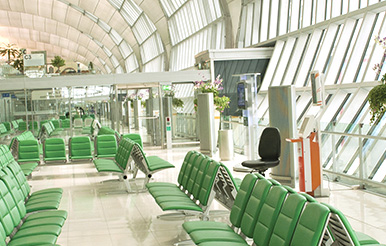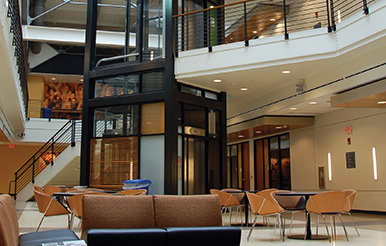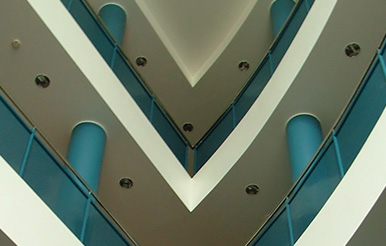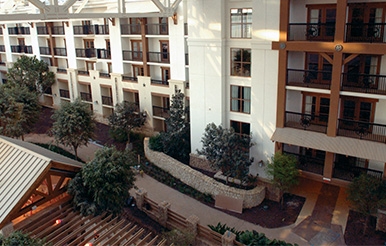Types of Fireproofing
There are several types of commercial fireproofing products for structural steel.
- Intumescent Fireproofing:
- Best option for structural steel that is exposed as part of the building design, such as an atrium
- Gives the exposed steel a painted appearance, which is typically preferred by designers
- Provides cleaner worksite, non-dusting coating and improved production
- Cementitious Fireproofing:
- Applied to structural steel when it is not exposed, for example when it is behind a drywall surface
- Involve a different process than simply applying paint and require special equipment and experience
Commercial properties such as schools, hospitals and office buildings all require some form of fire protection so that if a fire occurs, people can safely exit the building without it collapsing. And many times, they choose intumescent coatings as the preferred form of fire protection for structural steel. So, how does the intumescent coating product work?
Product is exposed to heat/flames
Product expands (intumesces)
Product forms a “char” insulation layer, protecting the steel from the heat
Steel is then able to maintain its structural integrity

Tips
Three pieces of advice for a contractor picking up this type of work.

Key Markets & Uses
The latest opportunity to expand your existing commercial painting projects is by offering intumescent fireproofcoatings for structural steel.

Specifications
Fireproofing is often required and mandated by local fire codes. Products used for this application are tested inaccordance with UL-263 (ASTM E-119) by Underwriters Laboratory or CAN/ULC-S101.

Coatings & Process
Intumescent coatings must be applied over an approved primer and topcoated with an approved product. Whenreviewing the drawings, they will indicate which members of steel require fire protection.










